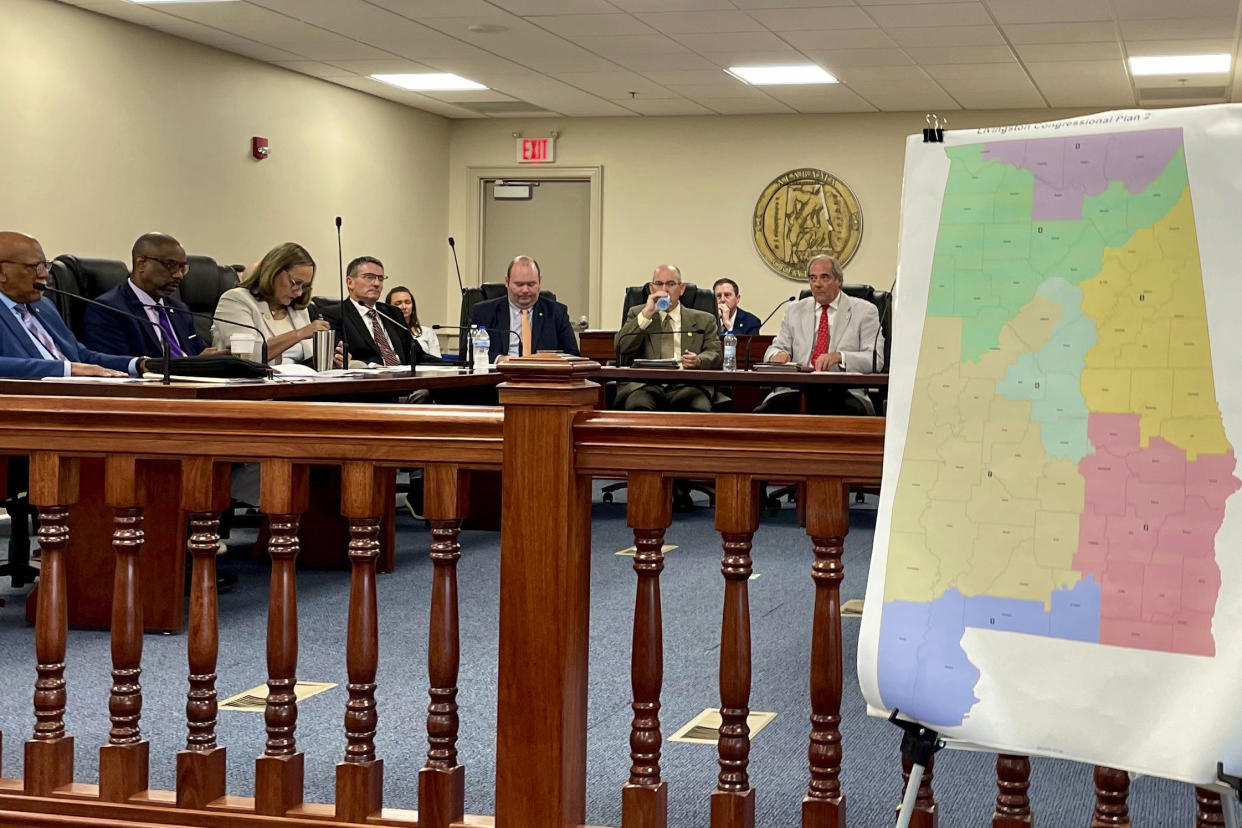Court tosses Alabama congressional map after GOP refuses to draw second Black district

A federal court struck down Alabama’s congressional map on Tuesday, after GOP state lawmakers refused the court’s mandate to draw a second majority-Black district.
The three-judge panel wrote that it was “deeply troubled” that the state legislature declined to draw two majority-Black districts. The same court ruled last year that it should draw a second majority-Black district to comply with the Voting Rights Act. The Supreme Court affirmed the ruling from the lower court earlier this year.
An independent court-appointed expert will now draw Alabama’s congressional map for the 2024 election. Republicans in the state are expected to appeal the decision, which could eventually make its way to the Supreme Court again.
“This is a significant step toward equal representation for Black Alabamians,” said Eric Holder, the former Democratic attorney general who now helms the party’s main redistricting organization, which backed the lawsuit. Holder added that the court rejected “the state’s blatant attempt to diminish those rights in defiance of both this court and the Supreme Court of the United States.”
Drawing a second-majority Black district in the state would likely lead to a second Democrat being elected. Currently, the state has a 6-1 delegation, with the only Democrat — Rep. Terri Sewell — coming from the state’s only current majority-Black district.
The cases in Alabama — Milligan v. Allen and other consolidated lawsuits — were backed by civil rights organizations and Democratic Party-aligned groups. They charged that the original map Republicans drew after the 2020 census, which had only one majority-Black district, violated the Voting Rights Act by diluting the power of Black voters. The three-judge panel agreed, writing in its decision last year that only two majority-Black districts or “something quite close to it” would fix it.
Earlier this year, the Supreme Court affirmed the lower court’s findings that the old Alabama map likely violated the Voting Rights Act. The ruling was a surprise for many court watchers, who had anticipated that the nation’s top court would use the case as an opportunity to chip away at the landmark piece of legislation that the Roberts court has repeatedly targeted.
Republicans in Alabama effectively thumbed their noses at the courts when given the opportunity to redraw the lines. The GOP-dominated legislature ultimately drew a new map that once again had just one majority-Black district and one with a Black voting age population of just under 40 percent. Alabama Republicans argued that they were complying with the law, saying the challengers did not prove the new maps violated the Voting Rights Act and that they were not compelled to draw a second majority-Black district to remedy any violation.
During oral arguments and in court filings, Alabama Republicans signaled that they would likely appeal any decision tossing out the lines.
The three-judge panel — Circuit Judge Stanley Marcus, who has been appointed to posts on the federal bench by both President Ronald Reagan and Bill Clinton, and District Judges Anna Manasco and Terry Moorer, both appointees of President Donald Trump — rejected those arguments.
“The law requires the creation of an additional district that affords Black Alabamians, like everyone else, a fair and reasonable opportunity to elect candidates of their choice,” the judges ruled Tuesday. “[The new map] plainly fails to do so.”
They also said they did not need to give the legislature another chance to redraw the map, saying there is no need to provide “a second bite at the apple” after state lawmakers made no effort to comply with the Voting Rights Act.
The Alabama litigation is just one of several ongoing redistricting lawsuits in the South that could ultimately lead to more Black and Latino representation — and more Democratic seats — in Congress.
On Tuesday, hearings kicked off in a lawsuit in Georgia that similarly alleged that the congressional map prevents Black voters from having the opportunity to elect candidates of their choosing. Hearings in a Louisiana suit are also set to resume next month. And a state judge in Florida ruled over the weekend that the state’s congressional map weakened the power of Black voters and must be redrawn, a ruling that is expected to be appealed by Republicans.
All told, as many as 13 states could see new lines before the 2024 election.

